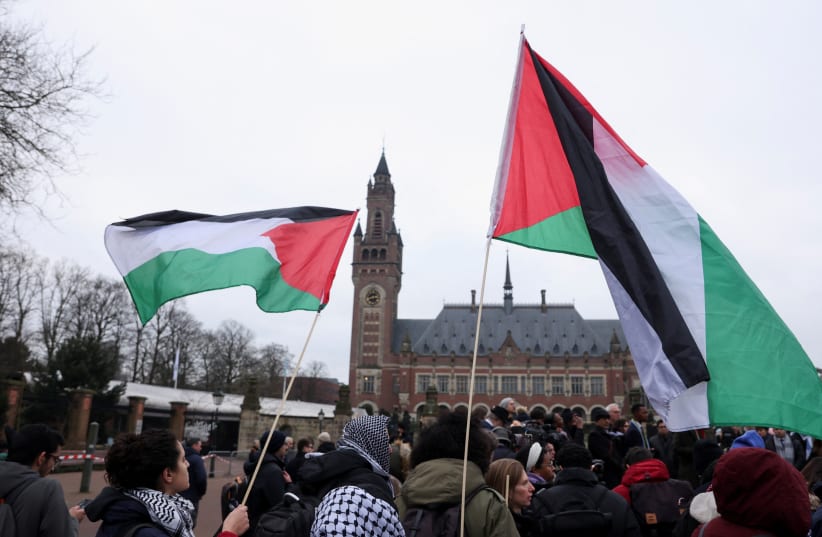
[Photo source: Jerusalem post]
By Iqbal Jassat
Since South Africa brought its case against Israel at the Hague in December 2023, the world’s attention has been riveted on the outcome.
Claims of “meritless” and “baseless” by senior Western leaders emerged to discredit South Africa’s submission.
Actual words uttered by the Biden administration were: “Meritless, counterproductive and completely without any basis in fact whatsoever”.
Such demeaning attempts to dismiss the case were matched by Israel’s legal team, who sought every legal trick to persuade the International Court of Justice (ICJ) to reject the application.
Finally, when the ICJ issued its verdict, all the naysayers who vehemently disparaged SA’s legal arguments were aghast and horrified to hear the court ruled that it is plausible that Israel is committing genocide against Palestinians in Gaza.
It threw Israel and its backers off their feet, and while floored, they realised that the end of their era of “untouchability” had dawned.
The belief that the unconditional political leverage it enjoys courtesy of the United States, United Kingdom and Western Europe allows Israel unlimited impunity was shattered by the ruling.
Thanks to a remarkably detailed and compelling case presented to the ICJ’s panel of judges, the SA team of legal experts ensured that its case was watertight.
Various legal minds who have studiously analysed the judgment underline that it “pointed to dozens of explicit statements of ‘intent to destroy’ by Israeli state leaders, wartime Cabinet ministers and senior army officers as well as the unprecedented levels of killing and destruction”.
By granting the order sought by SA, the court issued provisional measures, recognising the dire situation: “More than 26,000 Palestinians killed and more than 64,000 wounded in Israel’s bombardment, as well as almost 2 million people forcibly displaced now facing famine and the spread of infectious diseases”.
While the Zionist propagandists have gleefully claimed that the absence of an order for a cease-fire is a “victory” for Israel, they deliberately omit to mention that by an overwhelming majority vote of ICJ judges of 15 to 2, a compliance order to halt any acts of genocide was issued.
The instructions are clear: stop the genocide and ensure that the regime’s military complies.
Moreover, “as part of the court’s provisional measures, Israel must also prevent and punish incitement to genocide; ensure the provision of urgent aid to Gaza; prevent the destruction of evidence and ensure its preservation; and provide the court with a report on these measures within a month”.
According to Raz Segal, an associate professor of Holocaust and genocide studies and endowed professor in the study of modern genocide at Stockton University in New Jersey, the implementation of the ICJ ruling necessitates a cease-fire.
“In effect, these orders do require a cease-fire, for there is no other way to carry them out”.
His assessment echoes the views of SA’s Minister of International Relations, Naledi Pandor, who contends that “there would have to be a ceasefire” in exercising the order.
An interesting observation by Segal is that the ICJ ruling stems from the United Nations’ genocide convention of 1948 and is based on the view that Nazism and the Holocaust were exceptional.
“This served a purpose: It separated the Holocaust from the piles of bodies and destroyed cultures that European imperialism and colonialism — still very much ongoing at the time — had left around the world in the preceding few centuries”.
In other words, he explains that the exceptional status of the Holocaust, which rendered the “new Jewish state” in 1948 as exceptional too, “led to a willful blurring of its foundational crime, the Nakba: the mass expulsion of more than 750,000 Palestinians and the destruction of hundreds of villages and towns in the 1948 war”.
The result, according to him, is that in this exceptional framework, it became unimaginable that Israel could commit any crime under international law.
“Impunity for Israel was thus baked into the international legal system after World War II. The urgent need to obscure the Nakba also emerged from the broader impetus to deny the nature of the Israeli state as a settler-colonial project”.
The bitter truth, per Segal, is that paradoxically, Israel’s creation reproduced the racism and white supremacy that had targeted Jews for exclusion and, ultimately, destruction in Europe.
South Africa’s monumental submission and the positive outcome it received by an overwhelming majority of the 17 panel judges at the ICJ is thus much more than groundbreaking.
Segal’s profound reading of it implies that until now, the concept of genocide “functioned to protect the exceptional status of the Holocaust and Israel in the international legal system and to enable rather than challenge this long-held view”.
Until now!
“With the ICJ ruling that Israel’s attack on Gaza is plausibly genocidal, every university, company and state around the world will now need to consider very carefully its engagement with Israel and its institutions. Such ties may now constitute complicity with genocide.”
If, indeed, the historic ICJ ruling has paved the way for courts to consider the crime of genocide as a legal framework to describe what Palestinians are enduring, South Africa deserves full credit for ushering in a new era of international law.
Lawfare, after all, remains a crucial component of resistance against oppression, occupation, racism and genocide.
*Iqbal Jassat is an executive member of the Media Review Network, Johannesburg.


